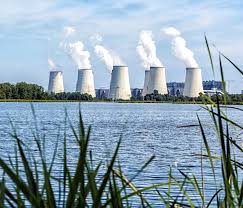By Azeez Mojeed Olusola
Europe has been shifting towards renewable energy sources for electricity generation over the past decade.
Wind and solar energy have been the main drivers of the shift towards renewables, accounting for 19% of the EU’s electricity generation in 2021.
But nuclear energy is the largest single source of electricity generation in the EU and across Europe, despite declining over the past couple of decades.
Mapped: Europe’s Biggest Sources of Electricity by Country
Energy and electricity supply have become vital for nearly every European nation over the past year, as the region shifts away from its dependence on Russian fuel imports.
While many countries have been making progress in their energy transition away from fossil fuels, nearly half of European countries are still dependent on them as their primary source of electricity generation.
This graphic maps out European countries by their top source of electricity generation using data from Electricity Maps and the IEA, along with a breakdown of the EU’s overall electricity generation by source in 2021.
Europe has been steadily transitioning towards renewable sources of energy for their electricity generation, making considerable progress over the last decade.
In 2011, fossil fuels (oil, natural gas, and coal) made up 49% of the EU’s electricity production while renewable energy sources only made up 18%. A decade later, renewable energy sources are coming close to equaling fossil fuels, with renewables making up 32% of the EU’s electricity generation compared to fossil fuels’ 36% in 2021.
Statistic showing the sources of energy and their EU electricity generation share
Wind has the seen the largest increase in the EU electricity generation share from 2011-2021
The expansion of wind and solar generation have been the primary drivers in this shift towards renewables, going from only generating 8% of the EU’s electricity in 2011 all the way to 19% in 2021. While this might still seem small, the EU’s share of wind and solar electricity generation is tied for first alongside Oceania when compared to other regions around the world.
While hydropower doesn’t make up as big of a share as other sources, it’s the most common primary source of electricity generation in Europe, playing an important role in providing renewable energy.
Nuclear energy is the largest single source of electricity generation in the EU and across Europe despite its decline over the past couple of decades. Back in 2001, nuclear energy made up one-third (33%) of the EU’s electricity generation, and in the following 20 years fell down to 25%.
The Primary Electricity Sources of Europe’s Major Nations
When looking at individual nations, the majority of Europe’s largest countries have fossil fuels as their largest primary single source of electricity.
Germany remains heavily reliant on coal power, which from 2017 to 2021 generated 31% of the nation’s electricity. Despite the dependence on the carbon intensive fossil fuel, wind and solar energy generation together made up more of Germany’s electricity generation at 33% (23% for wind and 10% for solar).
France is Europe’s largest economy that primarily relies on nuclear power, with nuclear power making up more than half of the country’s electricity production.
Italy, the UK, and the Netherlands are all primarily natural gas powered when it comes to their electricity generation from 2017 to 2021. While Italy is the most reliant of the three at 42% of electricity generated by natural gas, the Netherlands (40%), and the UK (38%) aren’t too far off.
Spain is an outlier among major European nations and a success story in a transition towards renewable energy sources. While in the period from 2017-2021 the country was primarily dependent on natural gas (29%), in 2022 natural gas’ contribution to electricity generation fell to 14% as wind rose up to become the primary electricity generator with a 32% share.
Accelerating the EU’s Energy Transition
Since Russia’s invasion of Ukraine, energy independence in the EU has become of utmost importance, and countries have taken the opportunity to accelerate their transition towards renewable energy sources.
A new report from Ember highlights how the transition made considerable progress in 2022, with solar and wind power (22%) overtaking natural gas (20%) in electricity generation for the first time ever.
While 2022 did see an increase in fossil fuel electricity generation for the EU, Ember is expecting it to decline in 2023 by as much as 20%. If the EU can sustain this accelerated shift away from fossil fuels, this map of primary energy sources of electricity generation could feature many more renewable and low-carbon energy sources in the near future.


